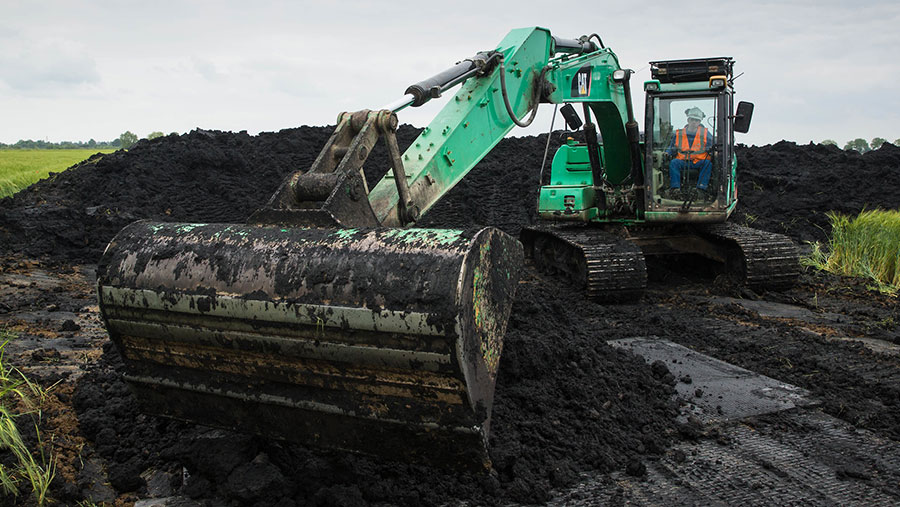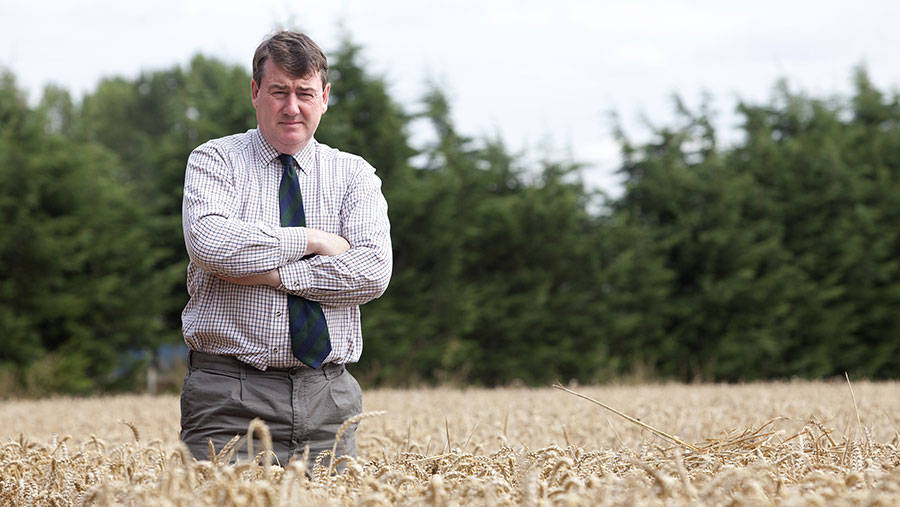Farmer criticises EA over ‘nonsensical’ silt spreading rules
 © Tim Scrivener
© Tim Scrivener A Berkshire farmer has criticised “nonsensical” Environment Agency (EA) rules which look set to prevent him spreading organic silt on his land to enrich his soils.
For many years, Colin Rayner has stored silt organic fertiliser on his farm to spread during autumn, to improve soil organic matter, before the land gets too wet to travel on before winter.
The riverbed silt is a by-product from the water industry, gained from a process of extracting river water and producing clean drinking water.
Rich in organic matter, carbon and nutrients, it provides a valuable resource for local farmers.
See also: Video: Farmer demands clarity on autumn muckspreading ban

Colin Rayner © Jonathan Page
Mr Rayner, a director of J Rayner and Sons, based in Horton, near Slough, takes silt from three water companies.
He says the partnership is a “win-win” for him and the water companies, which can dispose of the silt safely and supply residents with clean water in his region.
Under the farming rules for water regulations for England, the EA’s Regulatory Position Statement (RPS) 252, valid until 1 March 2022, effectively allows farmers to spread silt from a waste treatment plant this autumn, provided that certain conditions are met.
But from next year, these regulations look likely to limit the spreading of organic manures, including by-products from water treatment facilities.
Agency officers have told Mr Rayner he will no longer be able to spread the silt on his land after 1 October each year.
If he wishes to do so, he must have enough capacity to store the silt on his farm for at least six months.
Concrete pad and bund
This would mean paying around £100,000 for a concrete pad and bund to meet the requirements, notwithstanding the cost of applying for planning permission.
Mr Rayner is not prepared to fund this or risk a large fine should any pollution incidents arise during storage.
“We are trying to farm organically, reduce our carbon footprint and go carbon neutral, but the Environment Agency is not helping,” he told Farmers Weekly.
“If you’ve got a 1,000-tonne heap of sludge sitting on top of the soil, is it better to have it spread over 100 acres at 10t/acre, or have 1,000 tonnes concentrated on one acre that could run into ditches?”
Mr Rayner believes he, like many other farmers, will replace water silt fertiliser with artificial nitrogen and mined potash and phosphate shipped in from abroad, which is worse for the environment.
‘Bad science’
“None of it makes sense. It’s bad science. I can’t understand what [the Environment Agency] are trying to achieve,” he said.
“The biggest problem is there is no joined-up thinking with other government departments.”
He also questions how the EA expects water companies to dispose of the millions of tonnes of sewage sludge or silt if they cannot offload it to farmers, as it is not permitted for landfill.
Mr Rayner will also have to change his rotation from autumn cropping to spring cropping, which means he will have to put cover crops in over the winter at more expense.
He has written to business secretary Kwasi Kwarteng urging him to raise the matter in the House of Commons to support agriculture and clean water production.
‘Soft targets’
William Emmett, who also farms in the Thames Valley, said: “The EA rules mean farmers are going to have to spread everything in the spring, when Defra says we should not be travelling on wet, soft ground. It’s a total contradiction with their rules and regulations.
“The EA is being soft on water companies and the drainage of waste materials into the rivers – in particular, the Thames and other tributaries heading towards London. They are trying to get at farmers because we are a soft target.”
An EA spokesman said: “The Environment Agency is working closely with Water and Sewerage Companies (WaSC), Water UK, and Defra, to review how sludge is managed going forward, both in the short and long term.
“Sludge from water clarification and sewage sludge are allowed to be spread onto agricultural land using the Environmental Permitting Regulations (EPR) and the Sludge (Use in Agriculture) Regulations (SUIAR), respectively.
“Use of the EPR and SUIAR have not changed, and they remain available for the beneficial supply and use of wastes and sewage sludge on agricultural land.”
